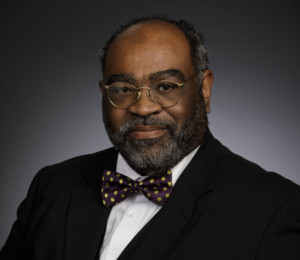I have a confession. I’ve not always embraced anniversaries and birthdays. Of course, I profess my love and appreciation to loved ones, so don’t think I’m completely callous. But for me, these days are ones of reflection, especially my own birthday. In case you’re wondering, I turned 29 on my last birthday, just as I have the last 30 birthdays.
As we approach Martin Luther King, Jr.’s birthday, I’m reflecting on the life of a man who gave his all in the service of others. Last year in this space, I acknowledged those sacrifices led to significant improvements in the lives of all people, not just those in the black community.
“Déjà vu” is a curious word. It’s a French word that loosely means the feeling that you’ve seen or experienced something before. As we approach King’s birthday, I’m feeling a bit of societal déjà vu.
King was born in 1929 on the eve of the Great Depression. As the son of a preacher, his family’s circumstances may not have been as dire as others in the black community, but he was still innately aware of the hardships and sufferings around him. By the time he stepped onto the national stage in the mid-1950s, there were two American societies, one white and the other black.
For the next decade, King crisscrossed the world, preaching the injustices of Jim Crow. He was such a brilliant orator that many imitated his style. The celebration of his birthday is perhaps the most meaningful testimony to the effectiveness of his life.
Everyone believed American society finally moved on from Jim Crow when President Lyndon B. Johnson signed the Civil Rights Act (1964) and the Voting Rights Act (1965) legislations. Maybe, maybe not. But, the ideological essence of Johnson’s Great Society illuminated the continual problems of poverty in this country.
Sadly, Johnson’s signature program would be undermined and underfunded on two fronts: the conflict in Vietnam and the Cold War-inspired space race. I don’t believe it is possible to determine what this society might look like if the billions of dollars spent on these endeavors went to low-income families, regardless of race, throughout this country.
By the mid-1960s, King became very vocal against American involvement in Vietnam. He was particularly upset by the continued practice of disproportionately sending men of color to the jungles of South East Asia in support of a country that rarely acknowledged their manhood. King’s comments about the space race were not against the possible technical advancements of putting a man on the moon but instead questioned if that was the best use of resources when so many were in need. Sometimes we forget that before his death, King was planning the next march to the nation’s capital. The focus this time would not be on race but on poverty.
Herein lies my déjà vu. As I reflect on King’s birthday and legacy in 2023, the news cycle is filled with stories of the war in Ukraine. While no American soldiers are involved, our leaders are diverting millions of dollars in defense of a democratic government under siege by Russian aggression. Remember, American soldiers were not initially involved in Vietnam, but we know how that story ended. Will Ukraine be this generation’s Vietnam? I pray not, but déjà vu.
Arguably, President John F. Kennedy launched American interest in space exploration when he challenged this nation’s brightest minds to put a man on the moon by 1970. That challenge was accepted and met when Neil Armstrong set foot on the moon in 1969. Today, public and private interests are spending billions developing and perfecting the technologies to return to the moon and even venture to Mars. Déjà vu.
Now, as in the 1960s, too many people in this country are homeless and hungry. Sociologists have even coined a new phrase, the “working poor,” to describe the tenuous condition where folks have jobs but still live in poverty. However, there are few advocates for them.
Where are this generation’s eloquent orators enraged by the continued ostracism of the poor? I certainly think the label of “the next MLK” is unfair and potentially burdensome for one searching to find their own individual voice.
Nonetheless, King remains the gold standard of “speaking truth to power.” His courage in the face of consistent verbal and physical threats was unbelievable. In his writings, King credits his faith for undergirding him during his dark hours. And he admitted that there were many, many dark hours.
So, my sense of déjà vu helps me appreciate the courage necessary to initiate the kind of societal paradigm shift King initiated in the 1950s and 1960s.
Dr. King’s legacy will forever be an encouragement to us that this life is about more than money; it’s about tackling those assignments which the Merciful Creator designed for us.
Ronald E. Goodwin, Ph.D., is an associate professor and interim division head of the Division of Social Sciences in Prairie View A&M University’s Marvin D. and June Samuel Brailsford College of Arts and Sciences.

